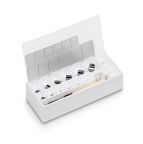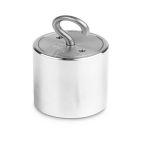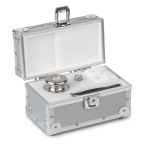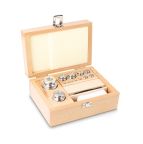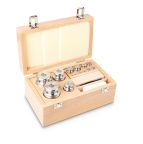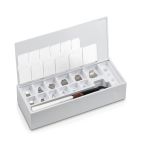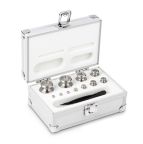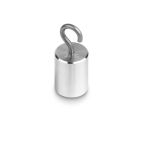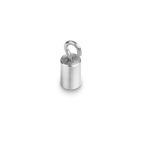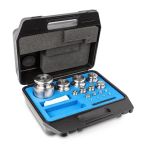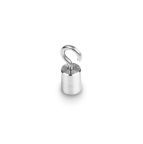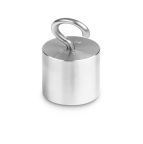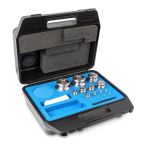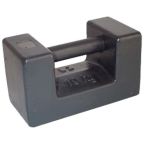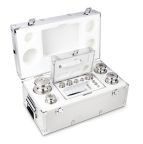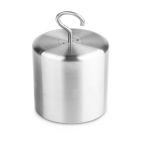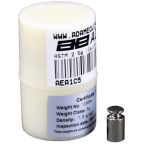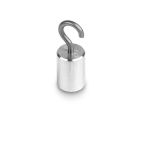Calibration Weights
Calibration weights are precision tools essential for calibrating weighing instruments and ensuring accurate measurements. Manufactured to high tolerances, these weights guarantee precision and reliability.
Typically made from corrosion-resistant materials like stainless steel or brass, calibration weights maintain their accuracy over time. This durability makes them ideal for various applications, including scientific research and industrial manufacturing.
Importance of Calibration Weights
Calibration weights are crucial in maintaining the accuracy of your weighing instruments. Over time, instruments may experience drift, leading to inaccurate readings. By using calibration weights, you can detect and correct discrepancies, ensuring your measurements remain reliable.
Available in a range of types and classes, calibration weights can meet different needs and specifications. In Hong Kong, investing in high-quality calibration weights is essential for businesses and laboratories that require precise measurements for compliance and operational efficiency.
Benefits of Using Calibration Weights
Calibration weights are precision tools critical for ensuring the accuracy and reliability of your weighing instruments. Benefits of using these precision weights include:
- Ensuring Measurement Precision: Regularly using test weights for calibration detect and correct drift, maintaining consistent accuracy on any calibrated scale.
- Meeting Standards & Compliance: Calibration masses help weighing systems comply with industry regulations. As such, using certified weights for calibration can help protect against penalties for non-compliance.
- Optimising Safety & Costs: Accurate measurements reduce risks and prevent material waste, safeguarding operations and resources in all environments.
- Maintaining Reliability and Lifespan: Consistent calibration with high-quality scale calibration weights ensures dependable performance and extends the instrument's lifespan.
- Versatility Across Applications: Available in various types and classes, calibration weights are suitable for a wide range of weighing instruments, from sensitive laboratory balances to robust industrial scales.
Types of Calibration Weights
There are several types of calibration weights available, including individual weights and weight sets. Individual weights are single precision weights that are used to calibrate specific instruments, while weight sets typically include a range of weights of different sizes and values, allowing you to calibrate a wider range of instruments. Calibration weights are classified based on their accuracy and tolerance levels.
The most common classes of calibration weights are Class F, Class E1, Class E2, Class M1 (used for the most demanding applications like pharmaceutical or aerospace industries). Whether you are a scientist, engineer, or industrial professional, calibration weights are an important investment that can help you achieve reliable and accurate measurements.
How Calibration Weights Work
Calibration weights play a fundamental role in ensuring the precision of weighing instruments by providing a known reference point for evaluation.
The calibration process is simple yet essential: a known weight is placed on a scale or balance, and its reading is compared to the pre-determined value of the calibration weight. If the instrument's reading perfectly matches the expected value from the calibration test weights, it confirms your instrument is functioning accurately. However, should a discrepancy arise between the displayed weight and the known value of these calibration masses, it indicates that adjustments to the instrument are necessary.
These weights undergo rigorous testing and certification to ensure their precision, with traceability to national or international standards. This certification guarantees that the weights remain reliable over time, maintaining measurement integrity in any application requiring precise measurement.
Applications of Calibration Weights
Calibration weights are used in various industries where precise measurements are non-negotiable.
Laboratories and Scientific Research
Precision weights are used to calibrate analytical balances for tasks like chemical analysis and environmental monitoring. Accurate measurements from a calibrated scale are vital for reliable research.
Manufacturing and Pharmaceuticals
Calibration masses are essential for scale accuracy in production processes, ensuring quality control, batch consistency, and compliance. In pharmaceuticals, precise dosage is critical for drug efficacy and safety.
Food Processing and Quality Control
In food processing, calibration weights ensure scales are precise for measuring ingredients, portioning, and packaging. This helps in maintaining consistency and safety standards.
Educational Institutions
Calibration weights provide students with practical, hands-on experience in understanding fundamental measurement principles and calibration techniques in academic settings like universities and technical schools. In turn, this fosters an appreciation for the importance of precision weights in scientific work.
How to Choose Calibration Weights
For precise, reliable measurements, selecting the correct calibration weights is crucial. Consider these key factors:
- Accuracy Class and Weight Range: Choose calibration weights with a class matching your needs, ensuring they cover your instrument's full measurement span.
- Material and Construction: Opt for precision weights crafted from durable, corrosion-resistant materials like brass or stainless steel, especially if being used in a humid or corrosive environment.
- Certification and Traceability: Always select certified weights for calibration traceable to national or international standards. This maintains the accuracy and trustworthiness of the weights, giving confidence in their performance.
- Compatibility: Ensure your chosen scale calibration weights are fully compatible with your specific weighing instrument, considering its size, shape, and any mounting requirements for proper functionality with your calibrated scale.
How to Order Calibration Weights from RS Hong Kong?
Secure the calibration weights you need reliably through RS Hong Kong, your dependable partner in test and measurement equipment.
Our selection ensures access to scale calibration weights from industry-leading brands, including Adam Equipment Co Ltd, Kern, and Ohaus. Additionally, we have other tools to aid your measurements, such as spring balances and force measurement devices.
To make a purchase, simply select the items you need online, add them to the basket, and proceed to checkout.
How Delivery Works at RS Hong Kong
Count on RS Hong Kong for rapid and reliable delivery of your test weights for calibration and other essential equipment. Our dedicated logistics ensure swift dispatch from our facilities. Furthermore, you can use your RS Online account to track your order's status every step of the way, guaranteeing its secure and timely arrival anywhere in Hong Kong.
For further details on our delivery options and fees, please visit our delivery page.
